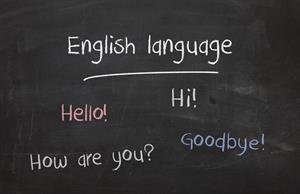MĀCĪBU GADA NOSLĒGUMA TESTI
Read, listen and learn some new words and repeat the known ones.
(Lasi, klausies un iemācies jaunos vārdiņus un atkārto zināmos!)

prepositions — [ˌprep.əˈzɪʃ.ənz] — prievārdi
There are different types of prepositions, such as, prepositions of time, place, movement etc.
prepositions of movement — [ˌprep.əˈzɪʃ.ənz.əvˈmuːv.mənt] — kustības prievārdi (away, from, to, up, down, through, along, pass etc.)
prepositions of place — [ˌprep.əˈzɪʃ.ənz.əvˈpleɪs] — vietas prievārdi (on, in, under, between, in front of, next to, opposite, behind etc.)
prepositions of time — [ˌprep.əˈzɪʃ.ənz.əvˈmuːv.mənt] — laika prievārdi (after, at, before, in, on, since, till etc.)
pronoun — [ˈprəʊ.naʊn] — vietniekvārds
There are different types of pronouns: personal pronouns, possessive pronouns, demonstrative pronouns etc.
personal pronoun — [ˌpɜː.sən.əl ˈprəʊ.naʊn] — personas vietniekvārds
Personal pronouns are divided into two parts: subject pronouns and object pronouns. (theme "Subject and Object Pronouns")
subject pronoun — [sʌb.dʒektˈprəʊ.naʊn] — teikuma priekšmeta vietniekvārds: I, you, he, she, it, we, they
object pronoun — [ˈɒb.dʒɪktˈprəʊ.naʊn] — papildinātāja vietniekvārds: me, you, him, her, it, us, them
possessive pronoun — [pəˈzes.ɪvˈprəʊ.naʊn] — piederības vietniekvārds: my, your, his, her, its, our, their
demonstrative pronoun — [dɪˈmɒn.strə.tɪvˈprəʊ.naʊn] — norādāmais vietniekvārds: this, these, that, those
question words — [ˈkwes.tʃənˈwɜːds ] — jautājamie vārdi: who, what, where, when, why, how. (theme "Question Words")
modal verb — [ˈmoʊ·dəl ˈvɜrb] — modālais darbības vārds
There are different modal verbs: can, may, must etc.